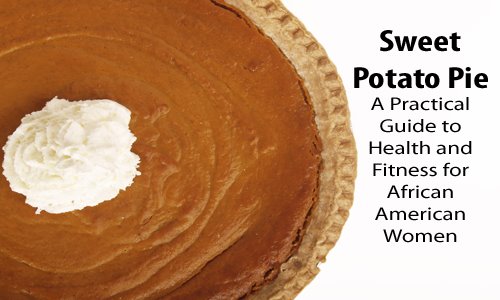I have searched my memory for the one defining moment that moved me from a “normal” eater to a “not-so-normal” one, but I can’t find it.
I don't think there was just one defining moment but rather many little moments that had the cumulative effect of driving me to eat more than my body needed for its health.
My parents, though married for 50 years, have had an acrimonious and contentious relationship which I think created great obstacles to them being emotionally available parents. They fed, clothed, housed, schooled and protected us, but they were almost completely incapable of providing emotional stability, nurturing, support or guidance.
When I look back at my childhood, I still feel keenly my sadness, loneliness, bewilderment and fear. I suspect that my inability to manage so many distressing and destabilising emotions drove me to seek comfort in sweet foods. Of course, I don’t remember the exact moment or circumstance when it struck me that sweets had special powers to anaesthetise pain, but I do remember that from the age of 8, I developed such an obsession with sugary foods that I was driven to steal coins from my father’s trouser pockets to finance my growing taste for toffees, sugar cakes, nut brittle, boiled sweets and whatever else I could get a hold of. I was even willing to risk the wrath of God, by keeping half the money my mother gave me for Sunday School collection each Sunday, to buy sweets on my way home from church.
My mother ran a very healthy kitchen and she rarely gave us snacks or sweets, so I had to be very careful about concealing my habit from my parents and my three sisters. One thing I could not conceal though was my growing body. I moved from an average sized little girl to a chubby one seemingly overnight if you go by my childhood photos. Yet I don’t remember anyone expressing alarm or realising that something must be wrong.
A few years ago I told my mother about my stealing and secret binges as a child and in her characteristically emotionally detached way, she said, “Oh that’s why you used to bring your lunch back home almost everyday.”
I didn’t remember not eating my lunch, but I did remember eating so many sweets between leaving school and arriving home that I didn’t have any appetite for dinner and would often just nibble stuff and push my food around my plate to make it look like I’d eaten something so I wouldn’t get into trouble for not eating.
I asked my mother if she didn’t find it strange that I didn’t eat lunch and sometimes didn’t eat dinner, but was growing fatter by the minute. She just shrugged which I took for a 'no'.
When people talk about obesity being a family illness, they are usually referring to parents who overeat and cultivate the same habits in their children, but what you hear less about is children eating to comfort themselves in a dysfunctional environment or parents who are themselves a healthy weight but watch their children growing fat without acknowledging that something is terribly wrong in their child’s life.
My mother did try to intervene a few times when I was a teenager, after doctors warned her that I was too heavy for my height, but whatever strategy suggested by the doctor she tried to enforce never worked because it did not take into account the reason for my eating.
When I left primary school for high school at 11, I no longer had to steal to acquire sweets because I got an allowance and could buy whatever I wanted. It seems to me though that when I entered high school my consumption of sweets slowed down and though I did continue to have what I called at the time a “sweet tooth”, it didn’t seem quite as intense as it had been in primary school. I went from what I now understand was "binging" to "grazing", which essentially means that while I still needed sugar I no longer felt the need to eat huge amounts of it all day long. I just took smaller quantities throughout the day. So for example instead of having 5 bags of M&Ms for lunch. I would have lunch and one packet of M&Ms after for a treat. If my friends and I went out for ice-cream intead of ordering a double cone in front of them and then when they were gone doubling back for two more double cones, I was satisfied with my double cone while they ate their singles.
I was definitely still attached to sugar and I was still overweight but as I grew less emotionally dependent on my parents and began to develop my own life and perhaps some emotional resilience, sugar played a more minor role in my life ... that is until I moved to the United States for graduate school.
I don't think there was just one defining moment but rather many little moments that had the cumulative effect of driving me to eat more than my body needed for its health.
My parents, though married for 50 years, have had an acrimonious and contentious relationship which I think created great obstacles to them being emotionally available parents. They fed, clothed, housed, schooled and protected us, but they were almost completely incapable of providing emotional stability, nurturing, support or guidance.
When I look back at my childhood, I still feel keenly my sadness, loneliness, bewilderment and fear. I suspect that my inability to manage so many distressing and destabilising emotions drove me to seek comfort in sweet foods. Of course, I don’t remember the exact moment or circumstance when it struck me that sweets had special powers to anaesthetise pain, but I do remember that from the age of 8, I developed such an obsession with sugary foods that I was driven to steal coins from my father’s trouser pockets to finance my growing taste for toffees, sugar cakes, nut brittle, boiled sweets and whatever else I could get a hold of. I was even willing to risk the wrath of God, by keeping half the money my mother gave me for Sunday School collection each Sunday, to buy sweets on my way home from church.
My mother ran a very healthy kitchen and she rarely gave us snacks or sweets, so I had to be very careful about concealing my habit from my parents and my three sisters. One thing I could not conceal though was my growing body. I moved from an average sized little girl to a chubby one seemingly overnight if you go by my childhood photos. Yet I don’t remember anyone expressing alarm or realising that something must be wrong.
A few years ago I told my mother about my stealing and secret binges as a child and in her characteristically emotionally detached way, she said, “Oh that’s why you used to bring your lunch back home almost everyday.”
I didn’t remember not eating my lunch, but I did remember eating so many sweets between leaving school and arriving home that I didn’t have any appetite for dinner and would often just nibble stuff and push my food around my plate to make it look like I’d eaten something so I wouldn’t get into trouble for not eating.
I asked my mother if she didn’t find it strange that I didn’t eat lunch and sometimes didn’t eat dinner, but was growing fatter by the minute. She just shrugged which I took for a 'no'.
When people talk about obesity being a family illness, they are usually referring to parents who overeat and cultivate the same habits in their children, but what you hear less about is children eating to comfort themselves in a dysfunctional environment or parents who are themselves a healthy weight but watch their children growing fat without acknowledging that something is terribly wrong in their child’s life.
My mother did try to intervene a few times when I was a teenager, after doctors warned her that I was too heavy for my height, but whatever strategy suggested by the doctor she tried to enforce never worked because it did not take into account the reason for my eating.
When I left primary school for high school at 11, I no longer had to steal to acquire sweets because I got an allowance and could buy whatever I wanted. It seems to me though that when I entered high school my consumption of sweets slowed down and though I did continue to have what I called at the time a “sweet tooth”, it didn’t seem quite as intense as it had been in primary school. I went from what I now understand was "binging" to "grazing", which essentially means that while I still needed sugar I no longer felt the need to eat huge amounts of it all day long. I just took smaller quantities throughout the day. So for example instead of having 5 bags of M&Ms for lunch. I would have lunch and one packet of M&Ms after for a treat. If my friends and I went out for ice-cream intead of ordering a double cone in front of them and then when they were gone doubling back for two more double cones, I was satisfied with my double cone while they ate their singles.
I was definitely still attached to sugar and I was still overweight but as I grew less emotionally dependent on my parents and began to develop my own life and perhaps some emotional resilience, sugar played a more minor role in my life ... that is until I moved to the United States for graduate school.





3 comments:
It seems like you've taken a lot of time to figure out why you're overweight. That's great. The more yo understand about why you over eat the better your chances of getting the weight off and keeping it off.
Great post.
Fan-freaking-tastic post!!
Today at work, the ladies and I were discussing your post and the sugar as a comforter dilemma....
A few of us either had been thru it (me included) or knew someone that had. Same story, the sweets were making up for love that was lacking or burying feelings of inadequacy.
In agreement with TS, and to repeat myself again, this is an addiction that has to be treated as such. Identifying and coming to terms with this problem is the first step in the healing process.
Bravo to you, Nona!
Thank you for this post.
I looked at the time I started gaining weight, eating sugars etc. and it was during two of the most difficult times of my life-family relationship issues- and I was using food as a way to get through it. I have many friends who have done the same thing, because snacks seem like an easy comfort.
Post a Comment